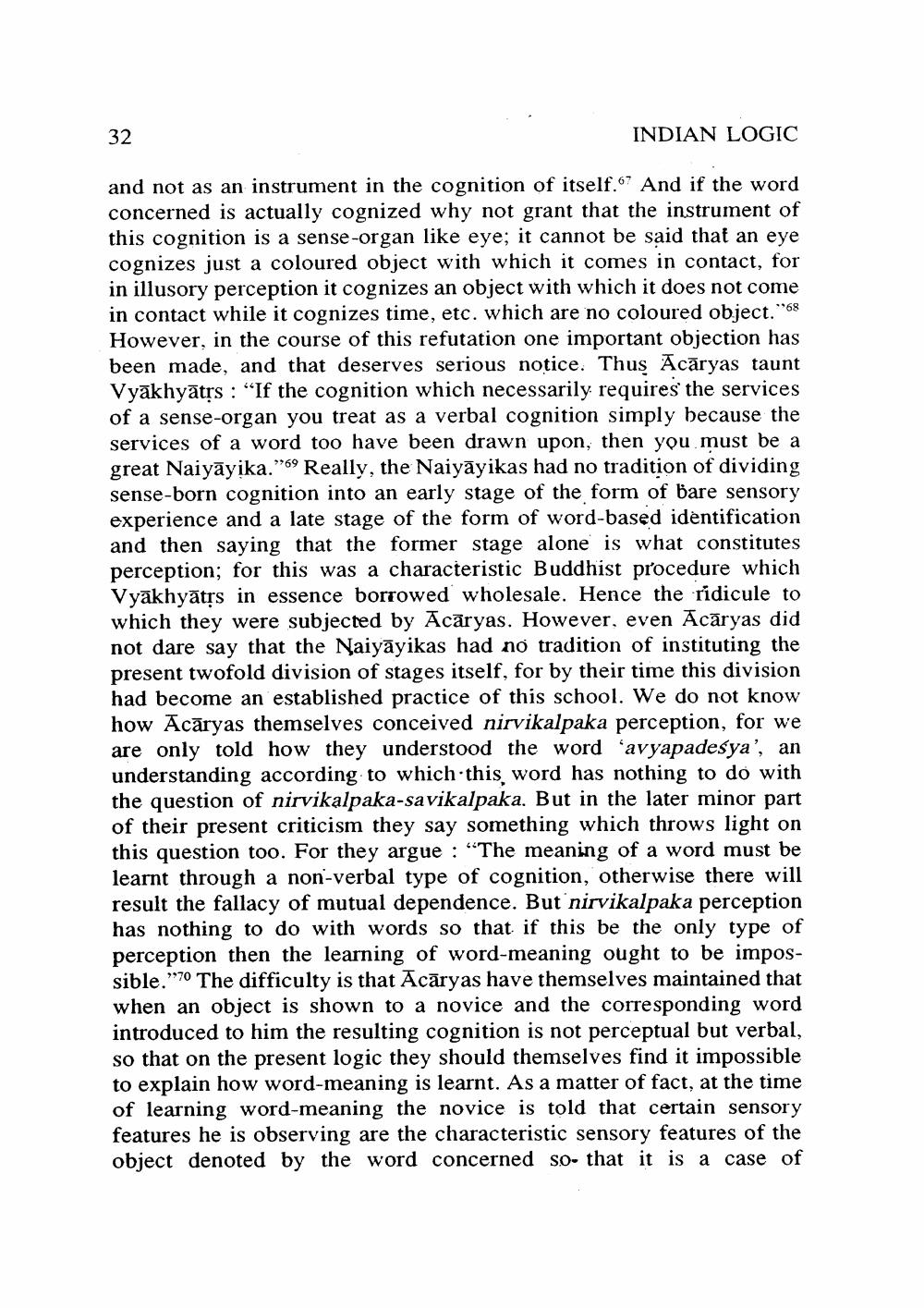________________
32
INDIAN LOGIC
and not as an instrument in the cognition of itself.67 And if the word concerned is actually cognized why not grant that the instrument of this cognition is a sense-organ like eye; it cannot be said that an eye cognizes just a coloured object with which it comes in contact, for in illusory perception it cognizes an object with which it does not come in contact while it cognizes time, etc. which are no coloured object."68 However, in the course of this refutation one important objection has been made, and that deserves serious notice. Thus Acāryas taunt Vyākhyātrs : “If the cognition which necessarily requires the services of a sense-organ you treat as a verbal cognition simply because the services of a word too have been drawn upon, then you must be a great Naiyāyika."69 Really, the Naiyāyikas had no tradition of dividing sense-born cognition into an early stage of the form of bare sensory experience and a late stage of the form of word-based identification and then saying that the former stage alone is what constitutes perception; for this was a characteristic Buddhist procedure which Vyākhyātrs in essence borrowed wholesale. Hence the ridicule to which they were subjected by Acāryas. However, even Ācāryas did not dare say that the Naiyāyikas had no tradition of instituting the present twofold division of stages itself, for by their time this division had become an established practice of this school. We do not know how Acāryas themselves conceived nirvikalpaka perception, for we are only told how they understood the word 'avyapadesya', an understanding according to which this word has nothing to do with the question of nirvikalpaka-savikalpaka. But in the later minor part of their present criticism they say something which throws light on this question too. For they argue : "The meaning of a word must be learnt through a non-verbal type of cognition, otherwise there will result the fallacy of mutual dependence. But nirvikalpaka perception has nothing to do with words so that if this be the only type of perception then the learning of word-meaning ought to be impossible.”70 The difficulty is that Ācāryas have themselves maintained that when an object is shown to a novice and the corresponding word introduced to him the resulting cognition is not perceptual but verbal, so that on the present logic they should themselves find it impossible to explain how word-meaning is learnt. As a matter of fact, at the time of learning word-meaning the novice is told that certain sensory features he is observing are the characteristic sensory features of the object denoted by the word concerned so that it is a case of




